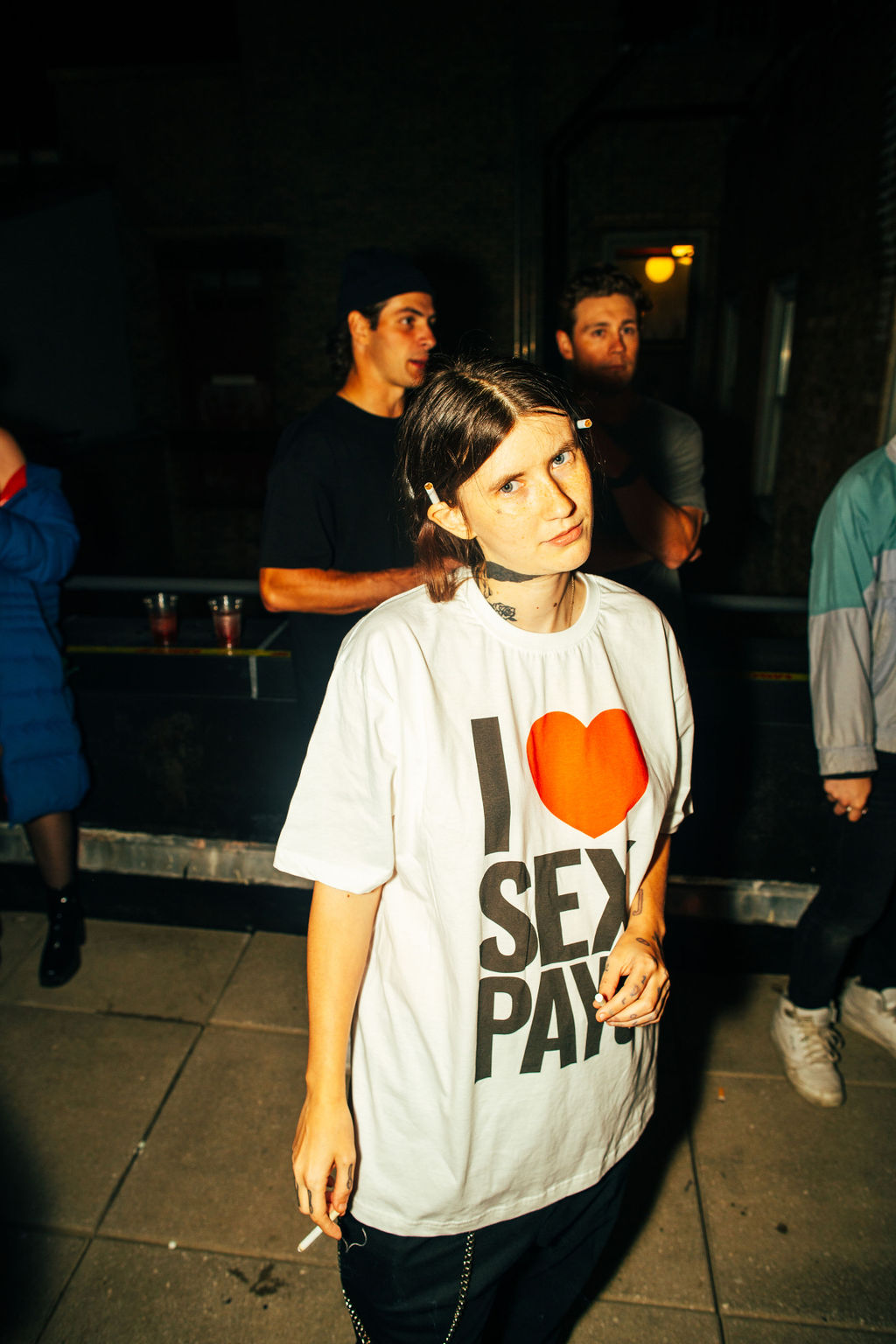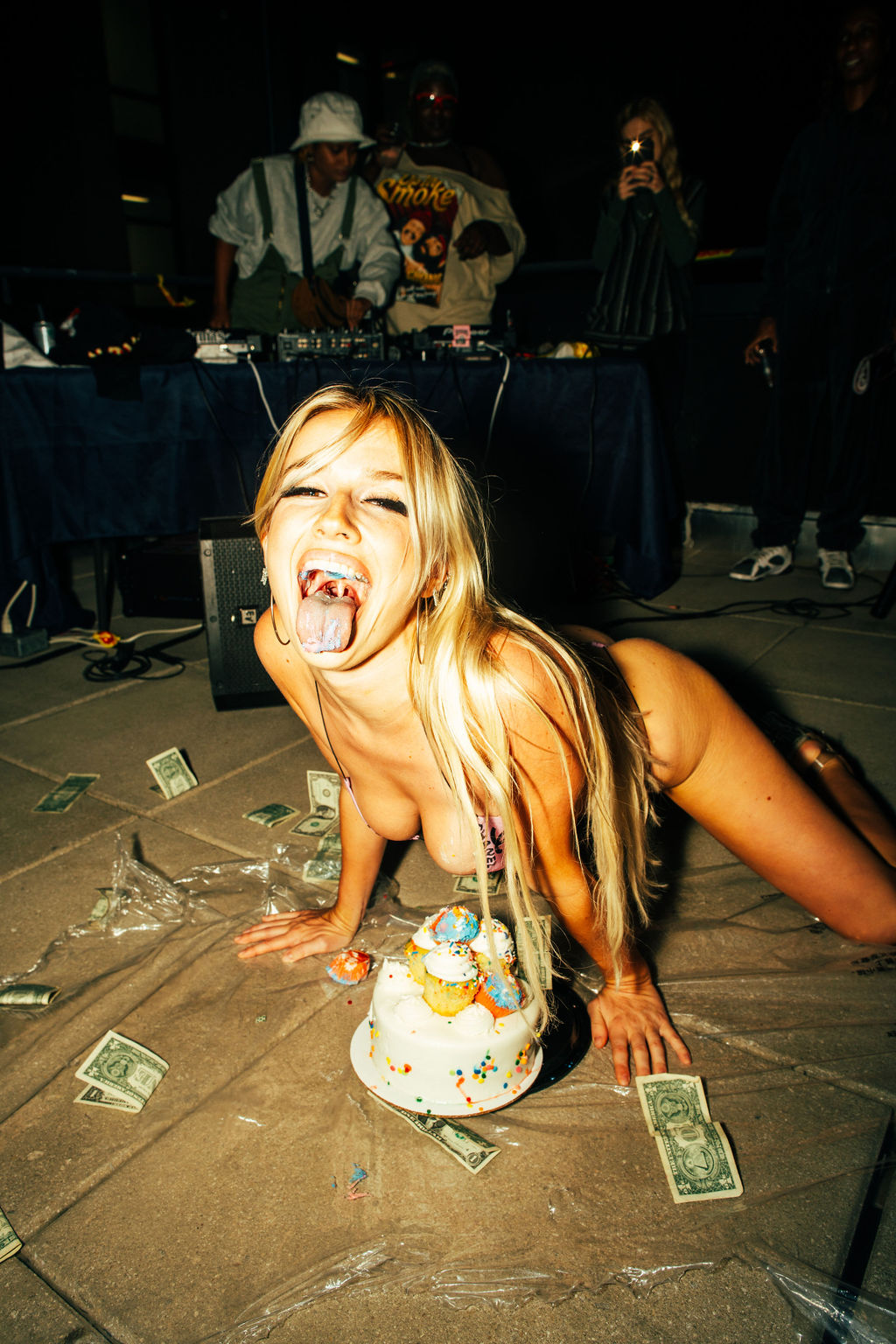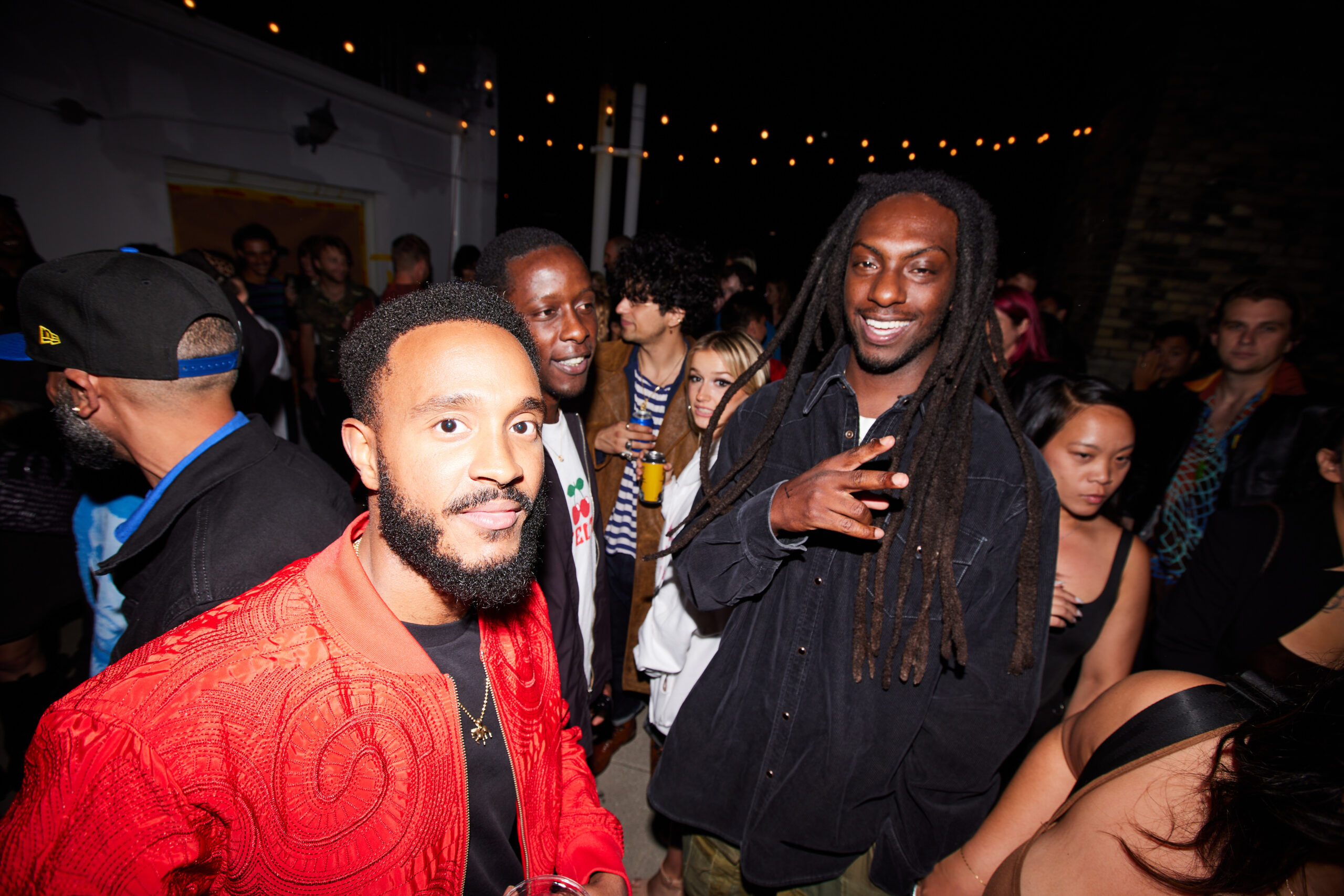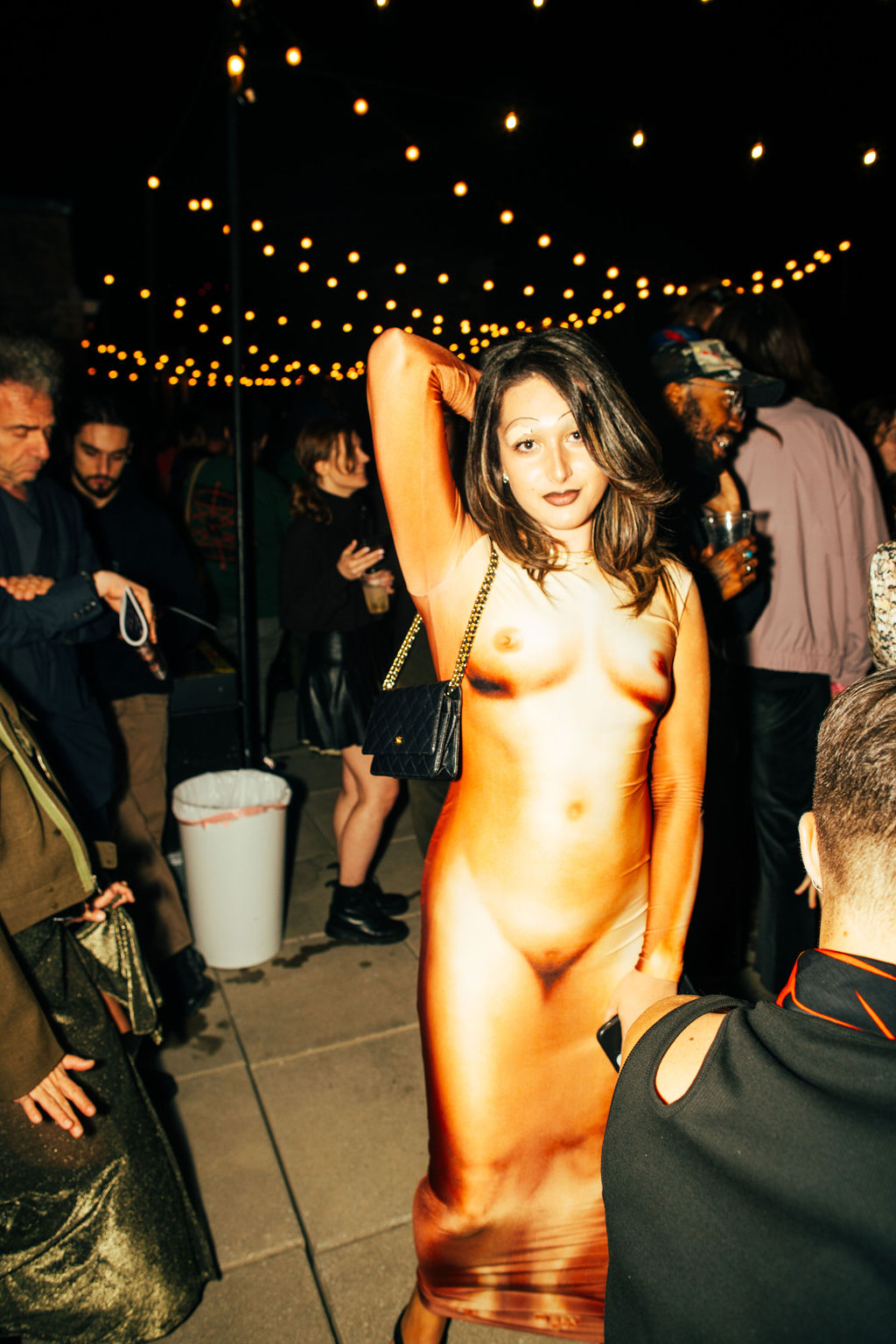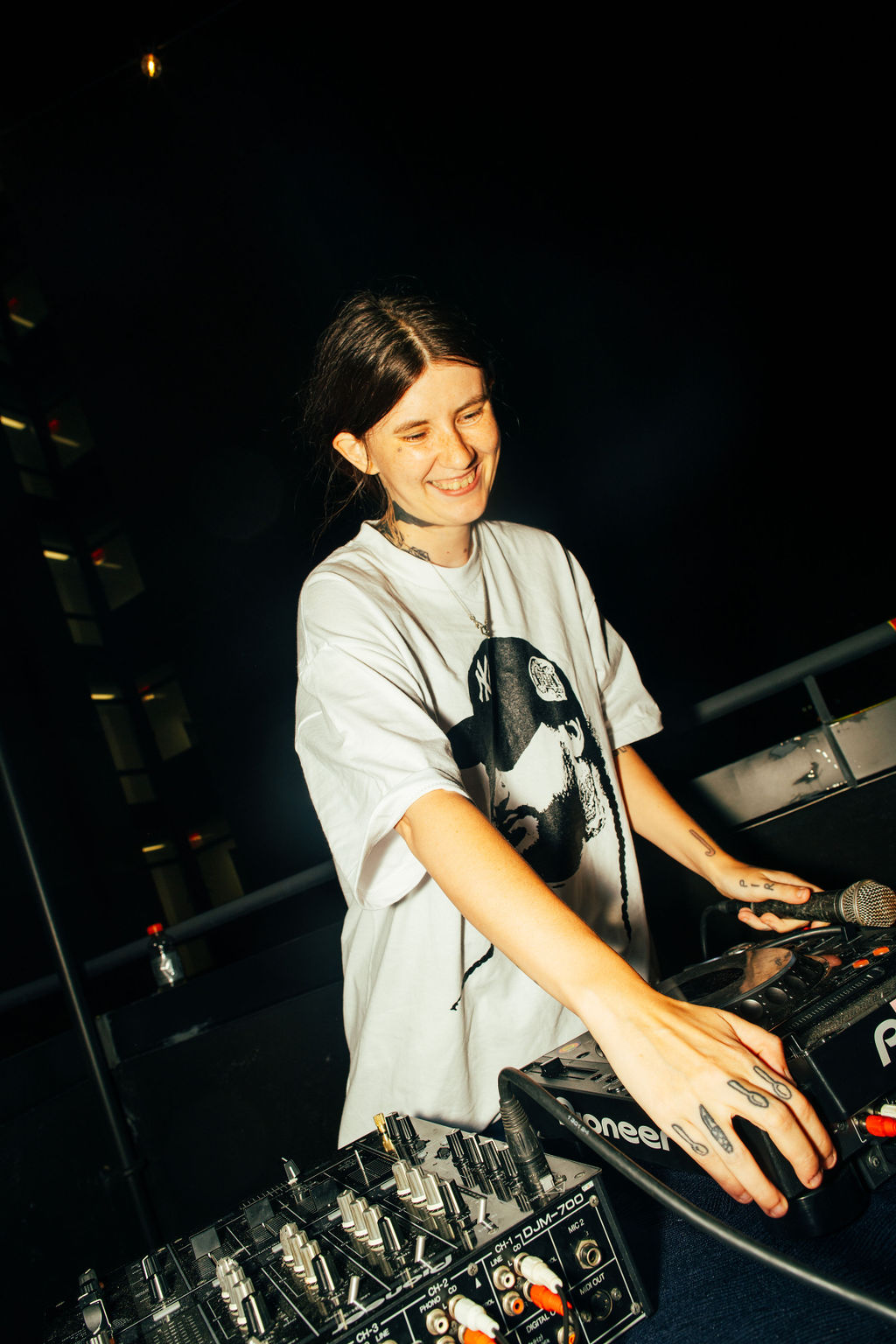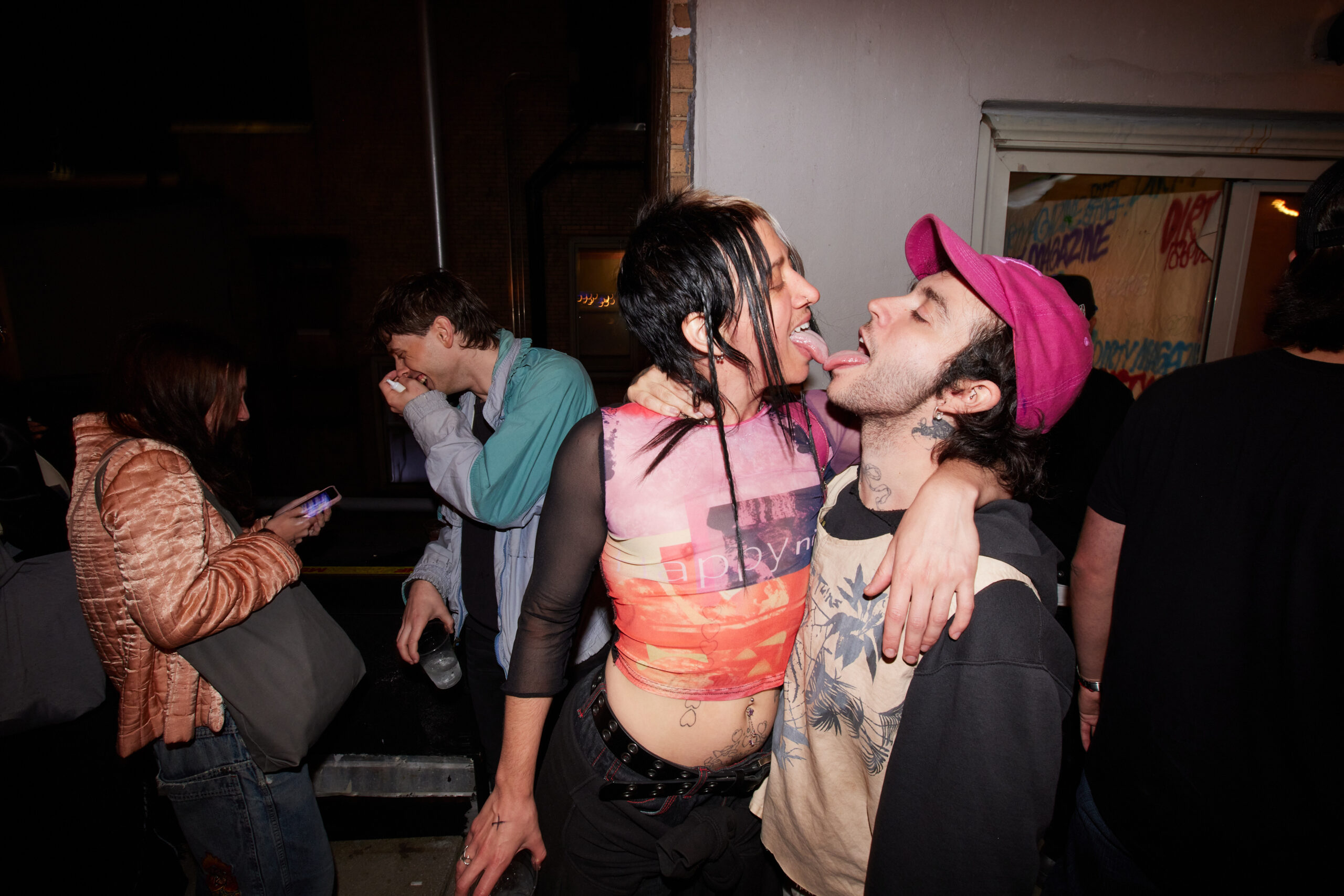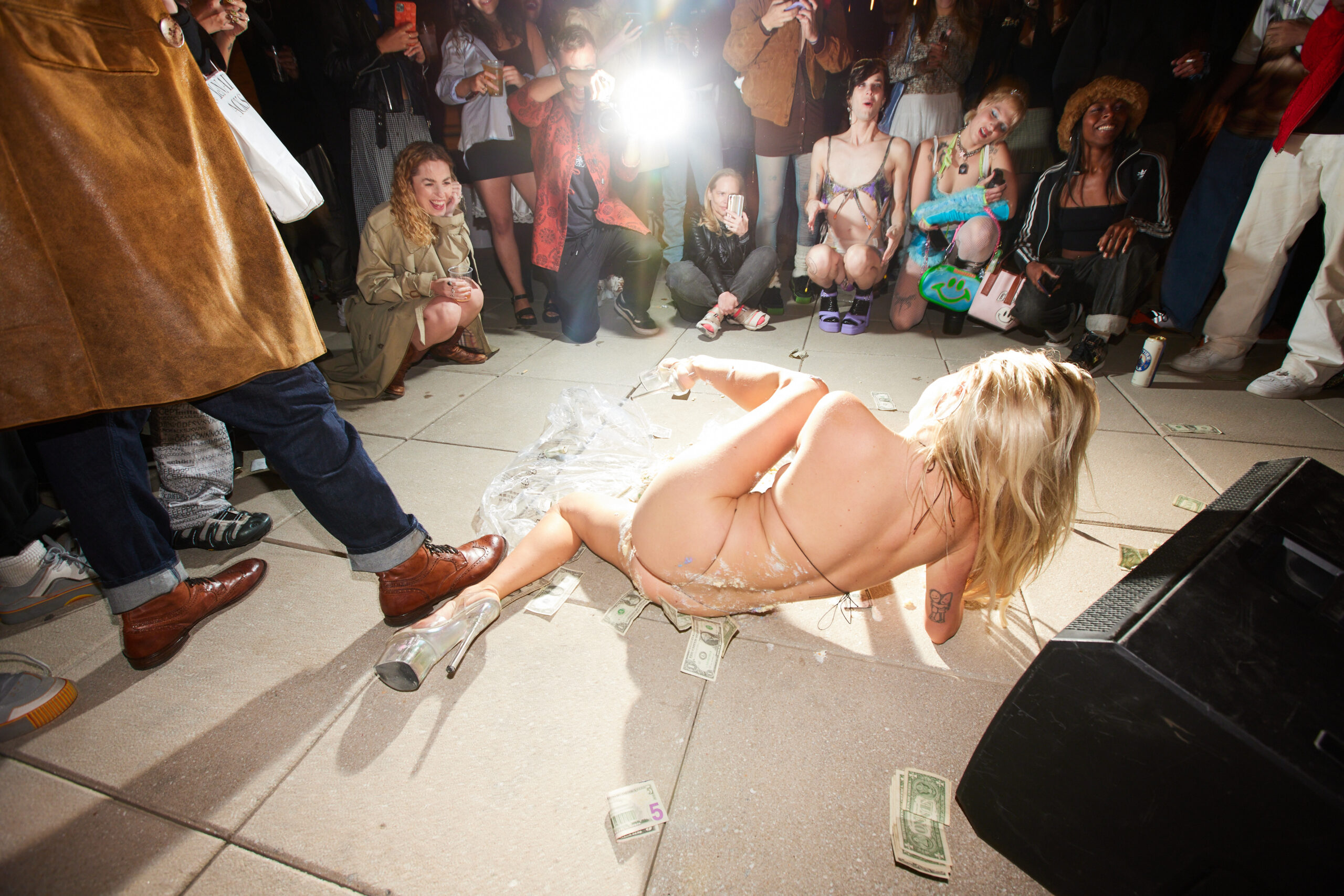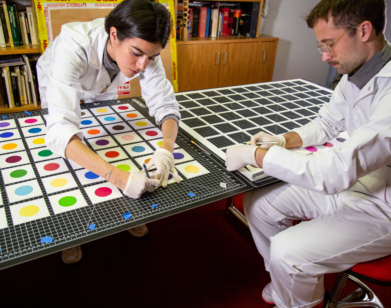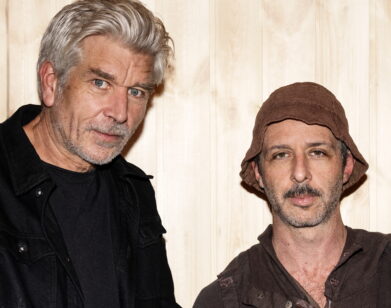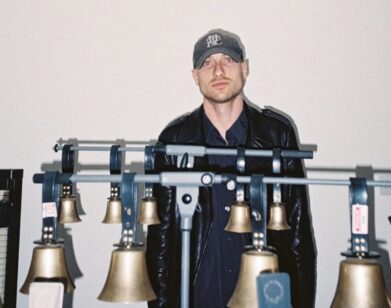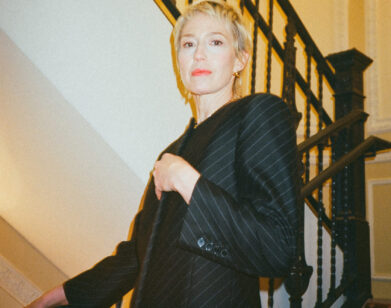PARTY
“It’s Part Smut, Part Skateboarding”: Meet Dirty Magazine’s Ripley Soprano
Every other event I go to these days is a magazine launch. A bloated content industry pumps out words to accompany all imaginable products and embalm each passing trend. Often, the paper object we’re meant to be celebrating is nowhere in sight, and nobody minds; writers and artists, and those who enjoy writing and art, simply crave a unifying force. On a Friday in September, at the tail end of fashion week, I visited a Lower East Side rooftop—another bound book of glossy pages had been printed. Refreshingly, it wasn’t a literati rag or heavy art bible but a bunch of X-rated pictures.
MSCHF, the art collective known for the viral Big Red Boots and other conceptual exploits, crowned sex the theme of their magazine’s seventh issue, wisely enlisting the team behind “NYC’s horniest fashion magazine” to guest edit. Dirty Magazine, which has published six issues of their own since launching in 2021, used MSCHF’s capital to pursue commodity fetishism through fake ads (a Dyson glory hole; a Bop It vibrator), publish essays (on objectophilia and Minions as a collectivist ideal), and run photo spreads of porn performers (including virtual influencer Lil Miquela). At the party, which the cops only busted after a solid spell of reverie, coders mingled with courtesans. A few hundred of us clutched copies signed by Pornhub ambassador Natassia Dreams as we tossed bills in the direction of Libertine Dream and watched Sophia Giovannitti perform a reading.
A few days later, I met Dirty Magazine’s publisher, Ripley Soprano, at the magazine’s headquarters on Mulberry Street, where we curled up on the couch to discuss Dirty’s attempt to bring the “cafeteria tables” of sex workers, drug users, and harm reduction activists together.
———
GRETA RAINBOW: Happy belated birthday!
RIPLEY SOPRANO: Aw, thank you. Yeah, 32.
RAINBOW: You don’t look it.
SOPRANO: People are always like, “Are you old enough to be here?” When I’m running an event about sex and drugs.
RAINBOW: How did the party go on Friday?
SOPRANO: It was so incredible. I mean, the turnout was amazing. This is going to seem convoluted, but I had an intern pass away, from an overdose, last year. A young man named Gary from Sheepshead Bay, and a lot of his friends and I have become very close. A big part of what we do is harm reduction focus, so I feel very committed to taking care of his friends. I was like, “I want to hire a bunch of these kids to deliver the invites on bikes and skateboards.” I think it started the vibe really well, to be like, “This is going to be really in person.” Even though it was invite only, I wanted it to have a vibe of, “We’re inviting you in, not keeping you out.”
RAINBOW: I loved getting home and having an envelope with my name on it taped to my front door. I’m surprised that some random person in Bushwick didn’t steal it.
SOPRANO: People are very respectful, generally. I have a lot of love for humanity because of things like that. I feel like what we were able to pull off was really special. We had the peep show set up, and two of the people who were performing in it were so into it that they were like, “I know that I’m off, but can we keep going?” They were just having the best time. Obviously, the cops came. Some people left but probably a hundred homies stayed. And we got some really incredible, different states of undress from the centerfold photo booth that we printed so people could take them home. I’ve had quite a few parties shut down before, and the way that it was handled was so badass. Gabe [Whaley] from MSCHF, was like, “$50 fine? No problem.”
RAINBOW: Wait, that’s not bad.
SOPRANO: I know. Our girl downstairs was like, “There’s no party. What do you mean?” And then the person who was DJing, when the cops were like, “Who’s the DJ?” she took her USB out and was like, “I don’t know. I don’t know who’s DJing.”
RAINBOW: I was curious, in the lead up, if it would be techy because of MSCHF. But it was lots of worlds.
SOPRANO: Yeah, and I feel like the MSCHF people are horny. I was like, “Damn, you guys get down.” I was hearing about their Slack channel, and how they were talking about what they were going to wear… I had that perception, too, at the very beginning, of not knowing what it was going to be like. But they were the easiest crew to work with. There were no barriers.
RAINBOW: To what you wanted to bring to the magazine?
SOPRANO: They said yes to everything.
RAINBOW: What is something that you were so glad made it in?
SOPRANO: The centerfold with Natassia I love. My friend Magdalena [Galen], who’s the associate publisher at Dirty, comes from an architecture background and does 3D modeling, and she designed these fighter jets made out of soda cans. And we were like, “This is expensive. Should we just do a rendering?” We didn’t! We had so much soda. Two of the features were written by people who had only been published in Dirty before, and they’re both sex workers. Brynn [Michaels’] piece with Veronica Vera is an intergenerational conversation about the sex industry from the ’70s to now. It’s a huge deal to have a 72-year-old person nude. Now Brynn has a piece that’s going to come out in Creem. And I am like, “Oh, yeah. You have a writing career now. That’s so amazing.”
RAINBOW: Why a magazine?
SOPRANO: Like, a physical one?
RAINBOW: Right. What propels you to publish one?
SOPRANO: I’ve always loved magazines. I remember going to St. Mark’s Books and picking up paper. That has always been a part of my life. [Dirty] started during COVID, and I felt like people needed to get off the internet. People were just becoming alienated from human interaction, and what they needed, in my direct community, was to be invited into something In the context of censorship and SESTA and FOSTA, there’s a lot we can get away with. We would not be able to publish what we do without getting eradicated by payment processors. We still deal with that, but it’s a little more under the radar.
RAINBOW: How has the Dirty community coalesced? You’ve been friends with [photographer] Max [Lakner] since you were 15.
SOPRANO: Probably even earlier. Max and I met when I was a freshman in high school, on the street. He was one of my first boyfriends and we have been friends since then. He had just gotten a camera when we met — there’s photos of me, at 14, getting my nose pierced. Everyone who we work with are very good friends or we have been watching each other for a long time. We like to bring people in who we know, and really trust, and are down with the freaks. It’s about the cast of characters. It’s a character magazine. People can walk down the street and spot a Dirty person. There’s a magazine that I’m obsessed with called Big Brother, which was started by the Jackass guys. It’s part-smut, part-skateboarding. They were really pushing the envelope in the ’90s and early 2000s. They ended up getting the Jackass deal because of what they were doing, and this is how Johnny Knoxville became someone.
RAINBOW: I see the inspo.
SOPRANO: There’s no original ideas. We’re so wrapped up in our inspiration, either from AIDS activism art — I consider AIDs activism an art movement — and skateboarding magazines, and papers that were run by people living on the streets in the ’80s and ’70s… In terms of the team, we’re all coming from different spaces but our interest is the overlap of public health, a design-forward magazine, and in-real-life community.
RAINBOW: Would you call the current harm reduction movement that you’re a part of an art movement?
SOPRANO: I want it to be. I think that there’s been a lot of sanitizing in certain parts of activism. It’s not true in the punk world, which is very aesthetic. It’s their aesthetic, which is not my aesthetic, necessarily, even though I like the way it looks. But I’ll speak specifically about harm reduction in New York. We have an SIS [supervised injection site]. We have a Narcan vending machine. People at least know what fentanyl test strips are and people know what fentanyl is because I don’t know anyone who hasn’t been somehow affected by that aspect of the public health crisis. But those things have had to become highly medicalized and scientifically backed in order for the city to recognize them. What I’m trying to do is not let the other things go. The harm reduction movement came from people living with AIDs, and people who were trading sex for drugs and trading sex for money. And without that, we’re not fully addressing what the issues are. To leave those aesthetics behind would wound the movement.
RAINBOW: How would you describe your aesthetic?
SOPRANO: MSCHF mag is very meme. It’s almost like the physical version of the internet. Specifically, the fake ads. Those are so funny to me. But in terms of Dirty, it’s a contemporary version of a 1970s smut mag, like Screw, the Al Goldstein one. Mixed with a ’90s skateboarding magazine.
RAINBOW: Who do you want to read Dirty?
SOPRANO: We’re actually planning on changing format slightly to move to a tabloid paper because we’ve done glossy for two years, and, not to flex, but we showed that we could do it, so now I want to do volume. Ideally, frequency would go up as well, which I feel excited about because spending six months on these is really great, but it definitely leaves you feeling a little like, “I wish that there was more.” The paper could be something that you pick up at a cafe that someone had left, and it could have real integration with New York life, which I feel like is our next goal. I feel like we’re very known and respected in our immediate community of sex workers, streetwear heads, skateboarders, and their friends. People who use drugs in skate parks, people who are still drinking malt liquor outside in November. Ultimately, I want Dirty to be in the hands of people who are affected by the issues that we care about but would not pick up an activist paper. Do you know what I mean? Because it’s not an activist project proper, but I do consider it a public health project.
RAINBOW: Yeah, and I think that’s such a good way to go about it, to work it into something that you’d want to be reading anyways.
SOPRANO: It is a lifestyle magazine. It’s just that the lifestyle aspect of it is catered to our audience. In issue five, Leigh Raven‘s talking ad nauseam about how she does her enemas before an anal scene. That’s health content.
RAINBOW: How does Dirty operate as a business? Do you make money primarily through advertising?
SOPRANO: Advertising is what we use to pay for the printing. What we’re doing with MSCHF is an example of moving into the creative agency space, where we can be hired by other magazines or other brands to curate something or almost act as an ad firm. I’m very interested in marketing, and my idea of marketing is anti-influencer, or, “How can you authentically reach an audience that you’re interested in?” ‘With Signal, they’re like, “I want encryption to win.” Signal doesn’t have to win. So I’m taking that ethos.
RAINBOW: How did you personally come to this scene, which is just your life? I guess other people will perceive it as a scene.
SOPRANO: I grew up around drug users and people who were working in the sex trades, and that’s just where I’ve always been coming from. It was very common for people to be talking about harm reduction, but they weren’t using that phrase. The idea of keeping people safe and the community care aspect is very close to me, always.
RAINBOW: How do you feel about New York these days?
SOPRANO: I feel so sweet about New York. One thing that I’ll say, and it’s another reason why I feel so strongly about the young people that I’m around, is that I think most people who grew up in New York still live at home, including myself. I’m in my 30s and still live with my mom. I think that most New York kids are much closer to homelessness than people really think. So my next big project is job creation. By that I mean, expanding young people’s definitions of joy, so that if, for instance, they want to stop using drugs, they can. And if they want to keep using drugs, they have safe ways to do it. And if they want to be outside all day, they can do that, and make some money, and they’ll make money so they’ll have a place to sleep at night. I think of the magazine as trying to bring the cafeteria tables together. I think that there’s a lot of people who are doing incredible things. Their groups might be homogenous, in whatever way, but we do have so much mixing at our events and I think that’s really special.
RAINBOW: Do you have any advice for people who want to start something with their friends?
SOPRANO: Do it. It’s so worthwhile. It doesn’t need to look like this. I’ve worked on so many zines. I am so into things that are stapled or Xeroxed. It can be whatever. I hang out with so many graffiti artists these days who I met around the time that the first issue came out because I went to a party in a construction site. I was like, “Oh, you don’t need anything.” Obviously there’s paint and whatever, but they’re just like, “Here’s a construction site. We’re going to figure out how to get a sound system, and we’re going to make sure that if it gets shut down that people don’t get in trouble.” What I’m trying to do is celebrate the margins where they are without trying to push them into the center. And then the other part is that you should just ask for more money.
RAINBOW: Always.
SOPRANO: Or go on strike. The stuff that’s happening now with AI is so primed for this general strike of cultural workers.
RAINBOW: Do you have thoughts on AI?
SOPRANO: Everyone should watch The Congress with Robin Wright as an aging actress who gets offered a deal to sign away her likeness. I want to do a mixer for SAG, just to get people in here who want to talk to each other about this stuff. We want to do more social events. We did a month-long series of acupuncture on Fridays that was specifically directed towards detox and withdrawal symptoms. It was so cool to have people here hanging out.

